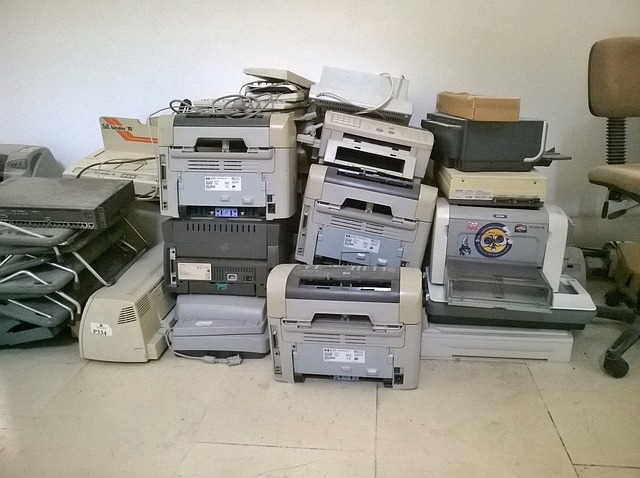
Do you have a passion for all things green?
Starting a recycling business is your chance to combine passion with business. With the U.S.’s 32.1% recycling rate, this sector has enormous potential for improvement. It leaves plenty of opportunities for entrepreneurs to enter the recycling field to help build a greener world.
Here’s everything you need to know about launching a recycling business.
What Do You Want to Recycle?
The first step is deciding what you want to recycle. Some areas are more saturated than others. You will also need to purchase special equipment to recycle various materials.
There are so many options for what you can recycle. For example, 80 billion pounds of food were thrown away in 2020, so food recycling is big business.
The Smithsonian Magazine also revealed that 85% of America’s plastic ended up in landfill rather than being recycled, so plastic recycling may be your choice.
You can also recycle paper, tires, chemicals, glass, and so much more. Specializing in one area is the best way to focus your business efforts and build a more profitable venture.
How Will You Collect Recycled Goods?
Collection methods determine how your business will run. There are a few different ways to collect recycled materials, but most entrepreneurs concentrate on three options, such as:
- Facility Drop-Off – This method involves setting up a facility where people can bring their recycled materials. You will sort through collections at the facility and separate them to be shipped to specific recycling facilities.
- Curbside Pick-Up – Curbside pick-up allows you to build a team who will go out to people’s homes and businesses to collect their recycled goods.
- Drop-Off Centers – Another option is to build up a network of drop-off centers in your community or region. Your team will regularly visit these centers to collect anything left there before returning it to a central sorting facility.
Think About Your Equipment
Most of the initial investment in starting a recycling business will go toward equipment. The success of your company relies on the quality of the equipment.
You will need several standard types of equipment, including pallet forks, shredders, forklifts, scales, and containers. If you’re recycling certain types of niche substances, such as industrial chemicals, you will also need to invest in specialist equipment to ensure you remain in compliance with industry-specific regulations.
Choosing the best machinery will enable you to become more efficient and get a longer lifespan from your equipment.
Research the Industry
Starting any type of business means knowing your industry and the competition. The recycling industry is no exception. You must evaluate the market, crunch the numbers, and decide whether you have a viable business plan on your hands.
Perform market research into the other recycling operations in your area, what they recycle, and how much of the market they hold. For example, if your competition is all recycling paper and plastic, it makes little sense to specialize in recycling the same materials.
Some cities may even have public recycling services, meaning you will need to get a little creative if you’re going to compete with city hall.
Some local governments may also have incentives for new recycling businesses. For example, grants and loans to cover staff, facilities, equipment, storage, and more may be available to help get your business off the ground.
Figure Out Your Costs
The costs involved will depend on what recycling businesses you’re running. The type of materials you choose to recycle and your recycling system will determine your expenditure and your profit margins.
For example, you will have far lower costs if operating a drop-off model, but spending more to invest in a pick-up service will enable you to grow your base faster.
The general costs involved in launching a recycling business include the following:
- Processing facilities
- Drop-off units
- Employees
- Equipment
- Utilities
- Transportation
- Company recycling bins
Factor in initial costs and ongoing expenses to determine whether you have a viable business. If applying for financing, you will need to have a mastery over your numbers when you apply.
Find a Facility
Regardless of whether your customers will come to you with their recycled goods or you go to them, you need a facility to carry out the job of recycling. You need a large enough location for all your equipment and an office to run your business from.
Recycling is a highly defined process, and not every facility will have the space or the layout to accommodate your processes. In addition, the high recycling facility costs mean you may need to expand your search beyond your town or city.
There’s a reason why many recycling companies will conduct their operations outside of town. Prices tend to be more reasonable if renting or purchasing a facility beyond the city limits.
However, opting for a facility outside of town will mean factoring in additional transportation costs and the complexities of a longer supply chain.
Register Your Business
Once you have everything in order, it’s time to register your business. Again, choosing the right business model will set you up for the future.
Whether you decide on a Limited Liability Company (LLC), S-Corporation, or C-Corporation, there are pros and cons to each. Therefore, it’s strongly recommended that you speak to an attorney who can advise you on which company setup is best for your company.
Conclusion
Launching your fledgling business is an exciting time, and the recycling industry is ripe for opportunity. However, recycling ventures are no different in that they require a lot of time, effort, and finance to get off the ground.
Surround yourself with experienced professionals who can help support and grow your business every step of the way.
What type of recycling business do you want to start?



